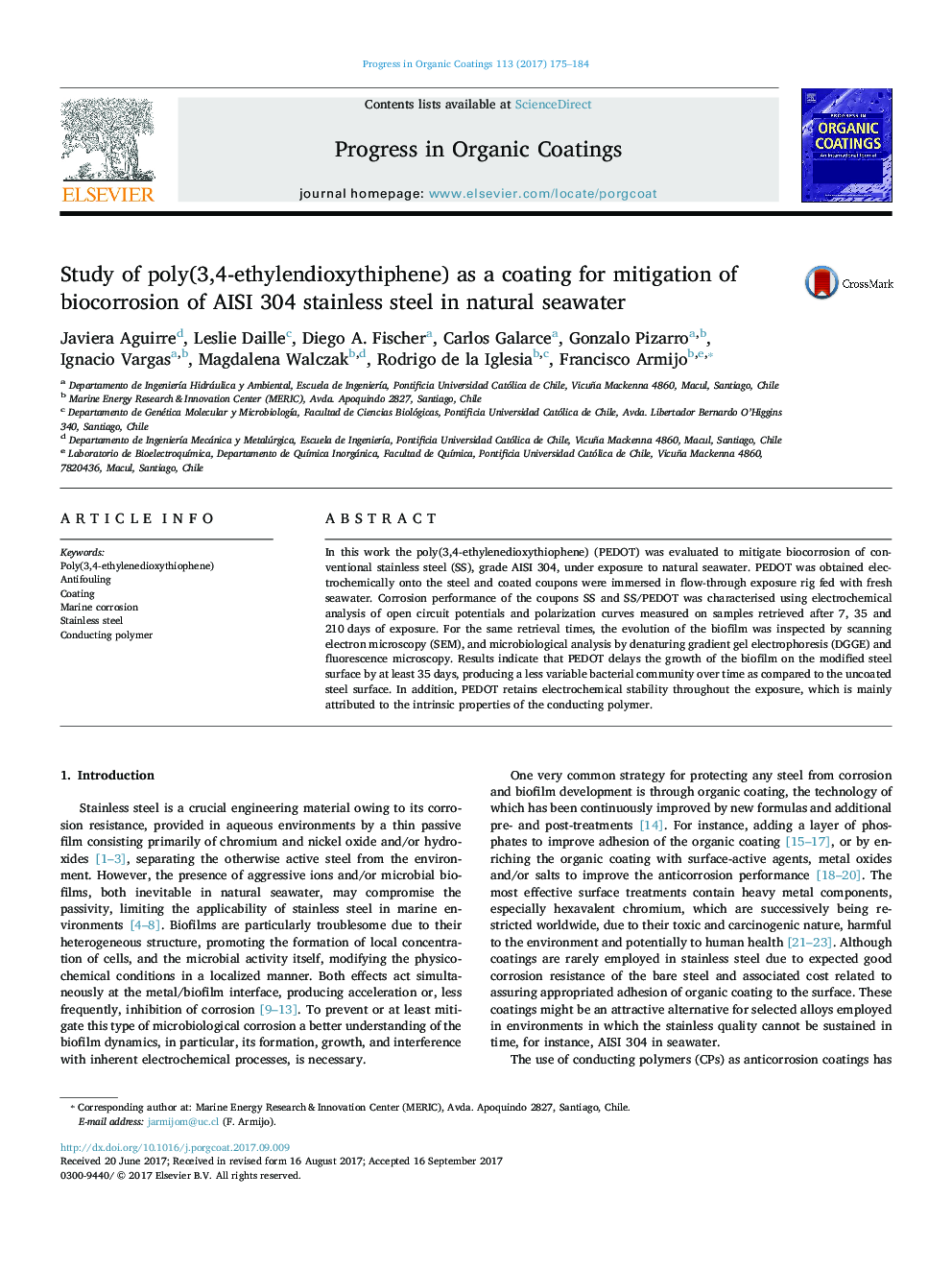| Article ID | Journal | Published Year | Pages | File Type |
|---|---|---|---|---|
| 4999108 | Progress in Organic Coatings | 2017 | 10 Pages |
Abstract
In this work the poly(3,4-ethylenedioxythiophene) (PEDOT) was evaluated to mitigate biocorrosion of conventional stainless steel (SS), grade AISI 304, under exposure to natural seawater. PEDOT was obtained electrochemically onto the steel and coated coupons were immersed in flow-through exposure rig fed with fresh seawater. Corrosion performance of the coupons SS and SS/PEDOT was characterised using electrochemical analysis of open circuit potentials and polarization curves measured on samples retrieved after 7, 35 and 210Â days of exposure. For the same retrieval times, the evolution of the biofilm was inspected by scanning electron microscopy (SEM), and microbiological analysis by denaturing gradient gel electrophoresis (DGGE) and fluorescence microscopy. Results indicate that PEDOT delays the growth of the biofilm on the modified steel surface by at least 35Â days, producing a less variable bacterial community over time as compared to the uncoated steel surface. In addition, PEDOT retains electrochemical stability throughout the exposure, which is mainly attributed to the intrinsic properties of the conducting polymer.
Keywords
Related Topics
Physical Sciences and Engineering
Chemical Engineering
Process Chemistry and Technology
Authors
Javiera Aguirre, Leslie Daille, Diego A. Fischer, Carlos Galarce, Gonzalo Pizarro, Ignacio Vargas, Magdalena Walczak, Rodrigo de la Iglesia, Francisco Armijo,
